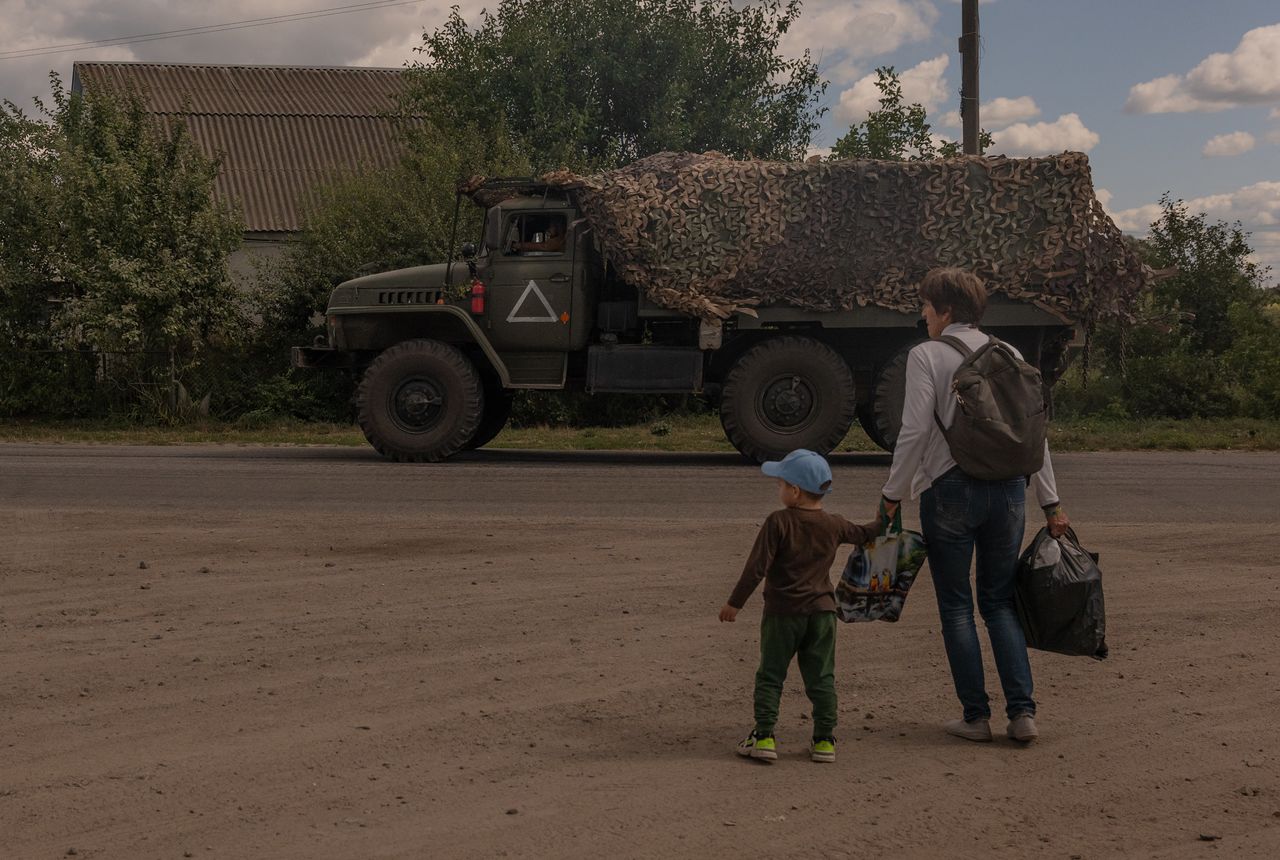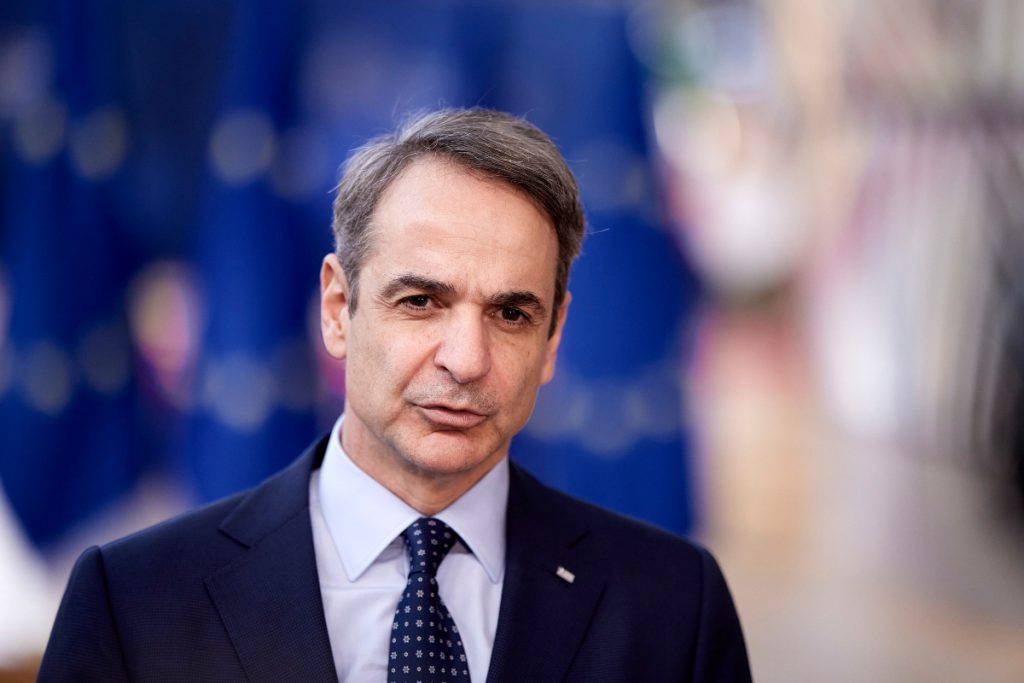SUMY, Ukraine—It was in darkness around 3 a.m. when the Ukrainian platoon encountered the most serious obstacle to their audacious invasion of Russia last week: a row of concrete pyramids designed to obstruct tanks.
They quickly dispatched one of the pyramids with three tank rounds, then poured through the gap in their armored vehicles. The Russian enemy, largely conscripts, mostly fled or surrendered as they were quickly overwhelmed.
“In two-and-a-half years Russia built no defense line,” said the Ukrainian platoon’s 33-year-old commander, who goes by the call sign Yanyk.
Within a few days, Ukrainian forces had seized more than two dozen villages in a lightning offensive that has shocked Russia and lifted spirits in Ukraine. It also has raised questions among military analysts about how sustainable it is given Russian superiority in manpower and weaponry along most of the rest of the front line.
For now, Russia is struggling to contain Ukrainian advances. But some Ukrainian soldiers waiting to join the battle from Sumy, the Ukrainian regional capital on the border, said they had been pulled from already threadbare units on the eastern front in Ukraine, suggesting Kyiv was already facing challenges finding fresh troops to maintain momentum.
Still, images of Ukrainian soldiers like Yanyk and his comrades charging through Russian territory and tearing down Russian flags from village halls have raised morale among Kyiv’s beleaguered army and embarrassed Russian President Vladimir Putin .
Yanyk was in a village near the Russian border Monday, preparing to return to the Ukrainian-controlled town of Sudzha about 7 miles inside Russia. Videos he posted online from his forays into Russia show Yanyk driving along dark, deserted roads, stopping to take the signs of conquered villages as trophies. “Now we’re going to be hanging out on your land just like you are on ours,” he says in one of the videos.
The swift maneuvers are reminiscent of Ukraine’s last successful counteroffensive that routed Russian forces from the Kharkiv region in 2022. Ukraine’s top military commander, Col. Gen. Oleksandr Syrskiy, who led the Kharkiv operation, on Monday said 1,000 square kilometers of Russia were now in Kyiv’s control.
On a visit to Kyiv on Monday, Sen. Lindsey Graham (R., S.C.) called the incursion “brilliant” and “bold,” urging the Biden administration to provide Ukraine with more weapons.
By thrusting across the border, Kyiv is seeking to divert Moscow’s resources away from other parts of the front line where Ukrainian forces are under intense pressure. But opening a new front risks stretching Ukrainian forces even thinner.
As fighting rages in Kursk, Russian forces have continued to gain ground in eastern Ukraine, creeping toward the logistical hub of Pokrovsk and hammering the nearby city of Chasiv Yar located on strategically important heights in the Donbas region.
At the same time, the Kursk invasion is an affront to Putin, who has ordered his military to swiftly eject Ukrainian forces. Addressing the “urgent problems” there at a meeting with top officials on Monday, Putin said Ukraine aimed to destabilize Russian society and strengthen its position in any future negotiations.
“The leaders of the Kyiv regime are not only committing a crime against the Russian people, but have in fact embarked on the path of extermination of the Ukrainians themselves,” he said. More than 120,000 people have been displaced by the fighting and 28 towns and villages are under Ukrainian occupation, the acting governor of Kursk told the meeting.
Ukraine’s ultimate plans are unclear. But whether Kyiv seeks to expand its incursion or cling on to what it already has, it will face trade-offs, said David Blagden, senior lecturer in international security at the University of Exeter in the U.K.
“The personnel, equipment and logistics demands of attempting to sustain the incursion then hold the taken territory will be significant, especially as supply lines lengthen,” Blagden said in emailed comments.
In a village near the Russian border, two Ukrainian soldiers awaiting orders to join the battle in Kursk said they had just arrived from the front line near Pokrovsk, where Ukrainian forces are under heavy pressure. “We came to help,” said one of them.
Another soldier said he was surprised to learn he was being transferred to the Sumy border region as his unit was so short of men that infantry spent as long as 45 days straight in a trench. The 25-year-old had been stationed in Chasiv Yar, one of the hottest spots on the front line, until a week before the incursion.
There is a higher concentration of troops in Kursk, he said, where he is helping shore up the rear as Ukrainian forces push further forward. Compared with the east, the skies are less saturated with drones that make concealing movement practically impossible, he said.
His unit is facing some problems, however. Its Soviet-designed automatic grenade launcher proved ill-suited to the fluid battles in Kursk because it is difficult to mount.
Others had been shifted to the Sumy region well in advance. The deputy commander of a squad that is taking part in the offensive said his unit had been sent there about two months ago but only found out about the Kursk offensive shortly before it got under way.
“Everybody is more or less happy with how it’s going,” said the soldier, who goes by the call sign Pokemon.
He said he had anticipated stiffer resistance. “They were mainly kids doing their mandatory service,” he said of the soldiers they encountered. His squad took three prisoners, the youngest of them age 19.
The incursion might strengthen Ukraine’s hand, giving Kyiv something to trade with Russia, Pokemon said. Despite the gains, he cautioned that keeping Ukrainian units in Russia properly supplied would be difficult. “The logistics needs to be very well thought through,” he said.
Another soldier said he hoped the offensive would expedite an end to the war. He had yet to join the battle, but said other members of his brigade had taken four prisoners from an artillery unit. Two others were killed and the rest ran away.
“This is the first time Russia has had war on its territory since World War II,” he said. “Everybody was afraid of Russia, but we are showing there is nothing to be afraid of.”
Write to Isabel Coles at isabel.coles@wsj.com



